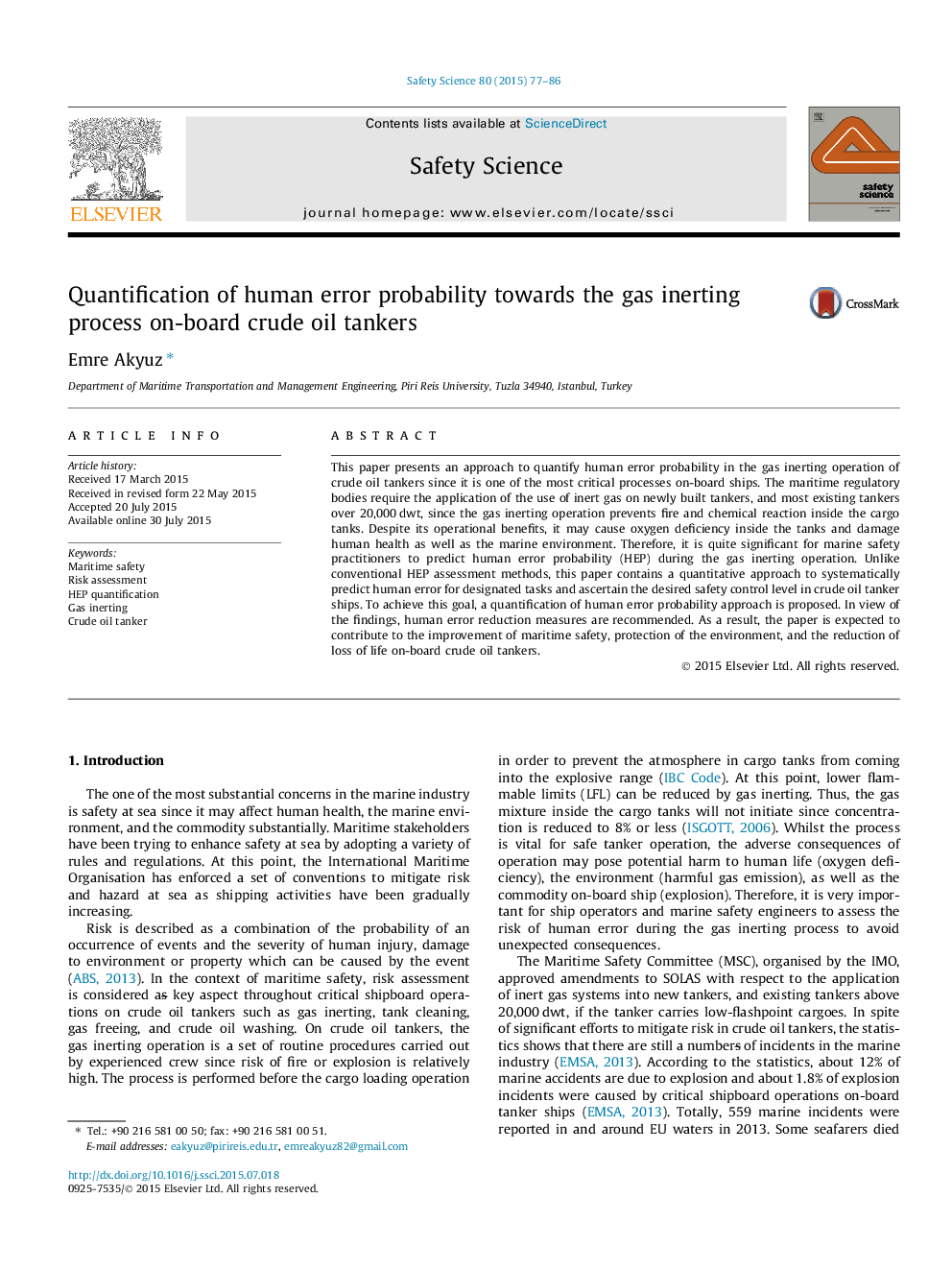| Article ID | Journal | Published Year | Pages | File Type |
|---|---|---|---|---|
| 588984 | Safety Science | 2015 | 10 Pages |
•A quantified human error prediction approach to enhance safety in marine industry.•Systematic human error prediction to determine the desired safety control level.•HEP reduction measures for critical shipboard operations in crude oil tankers.•Enhancement of safety during critical shipboard operation in crude oil tankers.
This paper presents an approach to quantify human error probability in the gas inerting operation of crude oil tankers since it is one of the most critical processes on-board ships. The maritime regulatory bodies require the application of the use of inert gas on newly built tankers, and most existing tankers over 20,000 dwt, since the gas inerting operation prevents fire and chemical reaction inside the cargo tanks. Despite its operational benefits, it may cause oxygen deficiency inside the tanks and damage human health as well as the marine environment. Therefore, it is quite significant for marine safety practitioners to predict human error probability (HEP) during the gas inerting operation. Unlike conventional HEP assessment methods, this paper contains a quantitative approach to systematically predict human error for designated tasks and ascertain the desired safety control level in crude oil tanker ships. To achieve this goal, a quantification of human error probability approach is proposed. In view of the findings, human error reduction measures are recommended. As a result, the paper is expected to contribute to the improvement of maritime safety, protection of the environment, and the reduction of loss of life on-board crude oil tankers.
